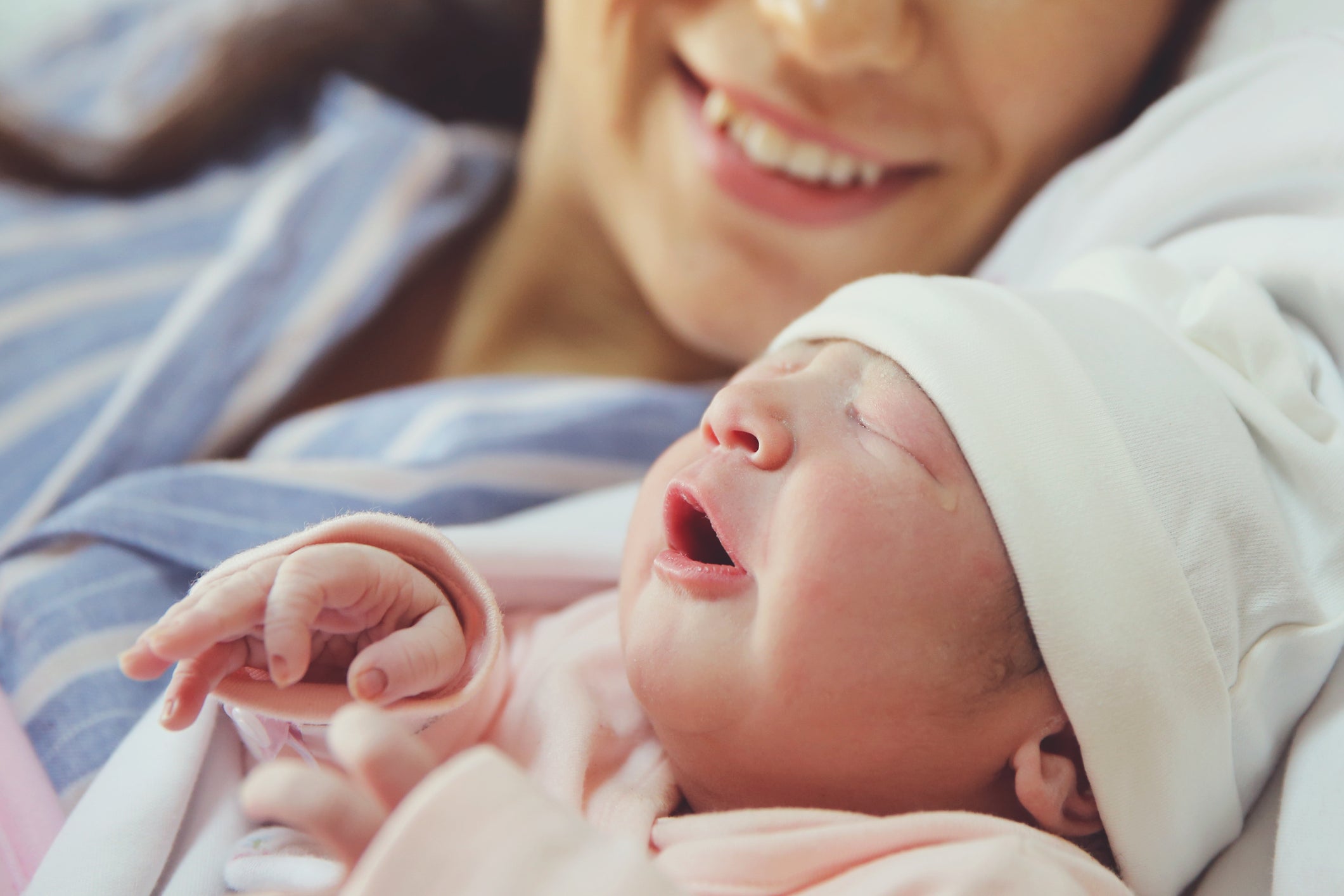Women who don’t need pain relief in childbirth have ‘genetic variation which creates higher pain threshold’
‘We could use the findings to create new pain relief by targeting this gene to treat chronic pain,’ says researcher. Maya Oppenheim reports


Women who do not need pain relief during labour could have a genetic variation that gives them a higher pain threshold, a major new study has found.
Researchers found that one in 100 women carry the genetic trait, which restricts the nerve cells’ capacity to transmit pain signals to the brain.
The Cambridge University study found the genetic variant, which serves as a natural epidural, does this by triggering a so-called defect in the “formation of the switch” on the nerve cells which means “it takes a much greater signal – in other words, stronger contractions during labour – to switch it on”.
Dr Ewan St John Smith, who was involved in the study, told The Independent: “The thing which strikes me as surprising as someone who is neither a physician or a woman is that there are women who don’t require pain relief in childbirth.
“It is cool to have studied childbirth and identified a new genetic variant which has major implications for pain threshold. But it is not just about childbirth. This gene is important for regulating pain sensation as a whole throughout the body.
“There is a fine balance between having a slightly higher pain threshold and having no pain threshold ... We could potentially target this new gene to treat pain in healthy people. For future research, we could use the findings to create new pain relief by targeting this gene to treat chronic pain. We have got an opioid crisis in America and in the UK. Forty per cent of adults suffer from chronic pain at some point in their lifetime.”
The new study, which was published in the journal Cell Reports, looked at women who carried their first-born child to full term and did not ask for any pain relief.
Researchers from Addenbrooke’s Hospital and Cambridge University applied heat and pressure to the women’s arms and asked them to immerse their hands into icy water.
In comparison to women who went through similar births but had been given pain relief, they displayed higher pain thresholds to handle heat, cold and mechanical pressure.
The study discovered no differences in the emotional and cognitive abilities of either set of women – saying that this shows an innate gulf in their capacity to handle pain.
Dr Michael Lee, the joint first author who is from the University’s Division of Anaesthesia, said: “It is unusual for women to not request gas and air, or epidural for pain relief during labour, particularly when delivering for the first time. When we tested these women, it was clear their pain threshold was generally much higher than it was for others.”
Professor Frank Reimann, who was also behind the research, said: “Not only have we identified a genetic variant in a new player underlying different pain sensitivities but we hope this can open avenues to the development of new drugs to manage pain.”
Professor David Menon, also involved in the study, said the findings could be utilised in future research to enable scientists to comprehend how people experience pain and create new drugs to counter it.
Join our commenting forum
Join thought-provoking conversations, follow other Independent readers and see their replies
Comments